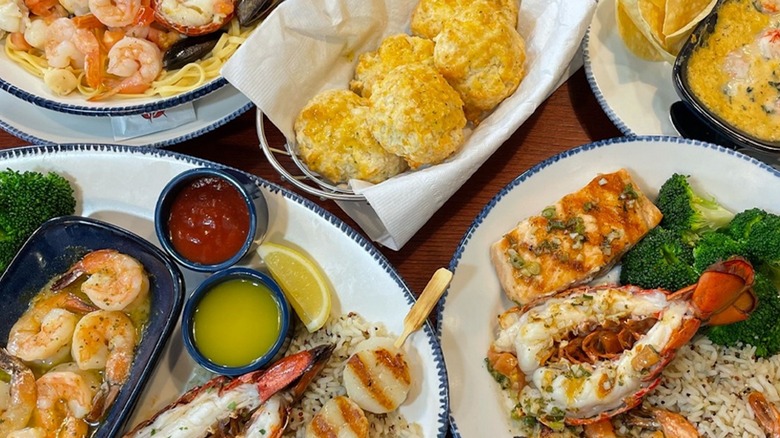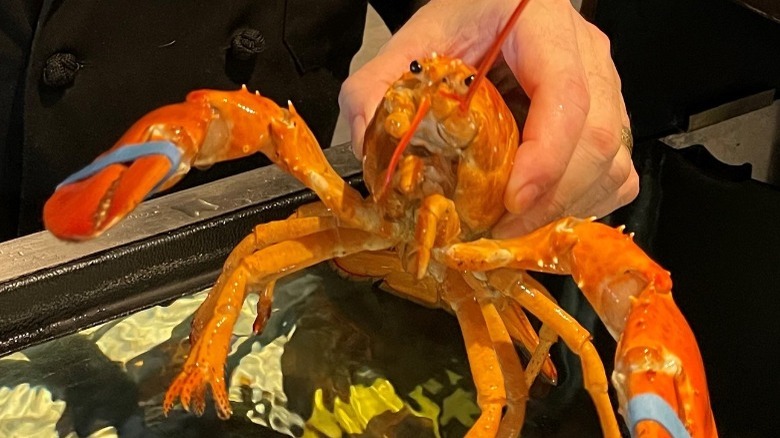The Real Reason PETA Is Going After Red Lobster
Red Lobster is a chain restaurant with an upscale-casual feel that's best known for serving up affordable seafood. Since Red Lobster is obviously known for serving up lobster-centric dishes, it receives a lot of lobster shipments. On its website, Red Lobster says "all the seafood we serve is sourced with standards," and notes that it does not boil lobsters alive. However, a recent shipment to a Florida location of the chain has the restaurant in some hot water.
This seafood shipment ended up resulting in an incredibly unusual find: a rare orange lobster. While we know lobsters to have a red-orange color when cooked, the orange lobster's shell has that same tone, but it's very much alive. (Live lobsters are usually more of a gray-brown color.) Per CNN, there is only one orange lobster for every 30 million standard lobsters.
According to Red Lobster's website, the chain wanted to take quick action when it learned it was harboring such an unlikely find. However, animal rights organization PETA has since sounded the alarm on the seafood restaurant.
PETA disagrees with Red Lobster's approach
Mario Roque, who manages the Hollywood, Florida Red Lobster location where this rare sea creature was delivered, decided he wanted to find the lobster a new home — per Red Lobster's website, the restaurant would not serve it. As a result, Red Lobster reported that this lobster, who was named "Cheddar" after both its color and the chain's Cheddar Bay Biscuits, had found a new home in the Ripley's Aquarium of Myrtle Beach. However, when PETA caught wind of the situation, the organization was not happy.
Delish reports that PETA released a statement about Cheddar: "Most lobsters turn a bright reddish hue after they've been plunged into boiling water and died in agony, but Cheddar is ruddy by nature, and she deserves to be returned to her ocean home instead of sentenced to a life of deprivation in an aquarium tank." On the contrary, Red Lobster suggested it was actually saving Cheddar, since the lobster's orange color made it "very attractive to predators." The aquarium did not respond to PETA's statement.
Though orange lobsters are incredibly rare, they're actually not the rarest of all lobster colors. According to Lobster Anywhere, multi-colored lobsters exist, too, but there is about a one in 50 million chance of finding one. The rarest lobster is actually a white lobster; there is only one for every 100 million standard lobsters. Last year, Red Lobster rescued a rare calico lobster, but only time will tell if the chain runs into any other bizarre-colored crustaceans.

